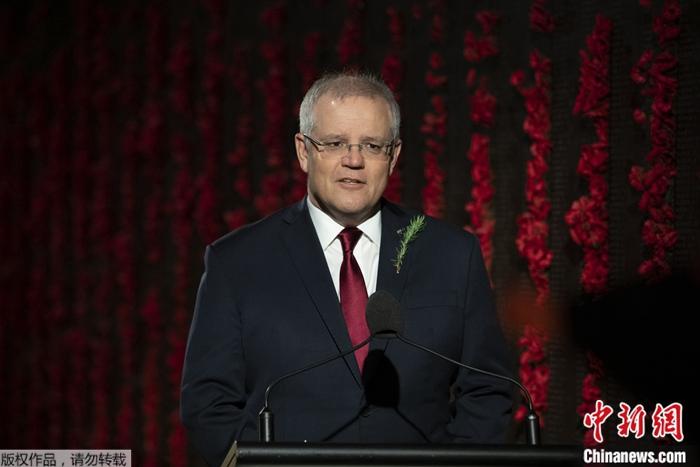China News Service, September 24. Recently, Australia announced that it has formed a US-UK-Australia trilateral security partnership called "AUKUS" with the US and UK, and is cooperating to build nuclear-powered submarines.
In this regard, mainstream media in Europe and the United States pointed out that this defense agreement has pushed Australia to the center of the US-China competition, but Australia’s bet on the United States is actually "very risky."
The New York Times of the United States stated that Australia will become the second country after the United Kingdom to benefit from the top-secret technology of the United States. distance.
In the past few years, the Australian government has hinted that it will adopt a more self-reliant defensive posture, but now it is adopting a new agreement to bet on the future of its alliance with the United States.
The data picture shows Australian Prime Minister Morrison.
However, why is Australia eligible for such "preferential treatment"?
"New York Times" analysis, this is not only because it is one of the oldest and closest allies of the United States.
For many American observers, Australia is still "a canary in the coal mine" in the competition between the United States and China.
Australia seems to believe that the United States will participate in Asian affairs for a long time and is prepared to suppress China if necessary-but this is not the case.
In the absence of vital interests, the United States does not have a very good reason to confront a big country like China.
Before the United States finds a clear answer, Australia must assume that it will eventually need to ensure its safety on its own.
The British Broadcasting Corporation (BBC) quoted critics as saying that Australia has given up strategic ambiguity because of the agreement.
"The way this agreement was announced has removed any pretense that Australia has not firmly stood on the side of military containment of China," said Professor Alan Ginger, chairman of the Australian Institute of International Affairs.
Ginger pointed out, “We once again interacted with people we know, and gave up efforts to build closer relations with other countries in the region... This is problematic.” He said: “In the future, Australia may struggle to maintain Its decision-making autonomy to maximize its interests will rely on foreign nuclear technology. "We cannot operate submarines by ourselves... Without the approval of the United States, the Australian Navy’s main strike capability would not be able to function.
"
Australia's actions have caused some backlash in the region.
The BBC reported that after the announcement, Indonesia cancelled the meeting with Australian Prime Minister Morrison; Malaysia warned that the agreement was "a catalyst for the nuclear arms race."
John Yunhao, an analyst at the University of Tasmania, said that "AUKUS" strengthened the notion that "when it comes to superpowers and their operations in the region, the opinions of ASEAN member states are irrelevant."
In addition, most experts said that Australia has mishandled its diplomacy around "AUKUS", and Australia has seriously offended France because it violated the previous submarine deal agreement.
Experts say this is a bad sign, because international relations involve both military agreements and diplomacy.
(over)

